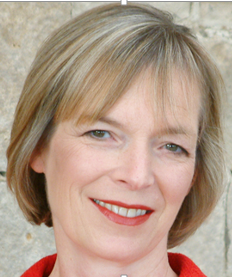
Louise Batchelor: Conference Chairing
Louise Batchelor is a former BBC Correspondent now turned freelance journalist and speaker specialising in transport, the environment and communicating science. She began her career as a newspaper journalist but quickly moved onto radio and television and worked for the BBC for 30 years, starting on Radio Scotland when it was founded in 1978. She was a presenter and reporter on Reporting Scotland, Newsnight, Newsroom South East and numerous other programmes. Louise strongly supports ‘green’ issues and tries to live an environmentally-friendly lifestyle. She has log-powered central heating and gardens organically. She is also a director of the Fair Isle Bird Observatory, on the executive of the Partnership for Action Against Wildlife Crime and on the steering committee for her local community woodlands. Louise will be Chairing the opening and closing sessions of the Conference.
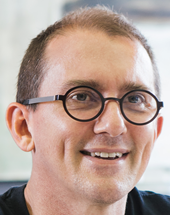
Richard Hassell - WOHA
Richard co-founded WOHA with Wong Mun Summ in 1994 in Singapore, and together they built it into the internationally-acclaimed practice it is today. He graduated from the University of Western Australia in 1989, then gained a Masters from RMIT University, Melbourne in 2002. He lectures around the world, and is a visiting professor at the University of Western Australia. In 2016 WOHA launched a new book at the Venice Biennale, called Garden City Mega City, sharing strategies for the exploding tropical mega cities. In it WOHA demonstrates the power of integrating landscapes and energy flows in Virtuous Cycles within architectural and urban design, using many of their own projects for inspiration and as exemplars. They show that it is possible to improve the quality of life within high-density environments while significantly reducing their environmental, social and economic impacts.
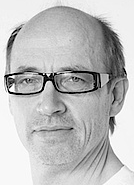
Matthias Schuler - TRANSSOLAR
Matthias Schuler gained his mechanical engineering degree from the University of Stuttgart and now lectures and teaches around the world, for instance at the Universities of Harvard, Stuttgart and Limerick. In 1992 he founded Transsolar in Stuttgart, Germany, now a leading provider of consulting services on developing sustainable design strategies for buildings. The firm has a strong technical basis, using highly sophisticated computational simulations (e.g., thermal, lighting) for concept validations. Schuler has worked with a large number of well-known architects in the field on high-profile projects. His design solutions are always innovative, validated by detailed analytical simulation studies. Recently his activities have also moved beyond the building scale and working on energy and comfort solutions at the urban master plan level, for example for the carbon-neutral Masdar development in Abu Dhabi.
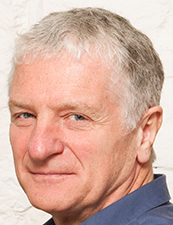
Rab Bennetts (Low Carbon Buildings)
Rab studied at Edinburgh College of Art with Denise Bennetts with whom he set up Bennetts Associates in 1987. Now based in Edinburgh, London and Manchester, they are responsible for many pioneering projects such as the PowerGen Headquarters, Wessex Water Operations Centre, Hampstead Theatre, Edinburgh University’s Informatics Forum, the Jubilee Library in Brighton, the New Street Square development in the City of London, the Royal Shakespeare Theatre, hotels in London and Amsterdam, Camden's new community building at King's Cross and commercial developments in the City of London. Their practice has won more than 140 awards and has been shortlisted for the Stirling Prize several times and is now leading the way in new thinking on the structure of architectural practice for the 21st century.
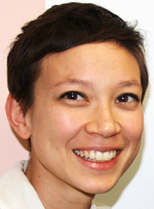
Isabelle Toland (Culture)
Now a director of Aileen Sage Architects, she worked during her studies on several international residencies with Mario Cuchinella in Paris, and Shigeru Ban in Tokyo and artists in Beijing, Berlin and London. On returning to Australia, Isabelle worked as a senior designer with Neeson Murcutt Architects on numerous award winning projects including the Castlecrag House, winning the prestigious Robin Boyd Award in 2011. She worked on a range of culturally sensitive community projects such as The Embroiderers’ Guild in Concord West, Juanita Nielsen Community Centre in Woolloomooloo, the Larapinta Campsites in the Northern Territory and Prince Alfred Park and a Pool for the Council of the City of Sydney. At Toland Architects Isabelle worked on a number of community and cultural facilities projects for indigenous groups from Western Australia, regional NSW and Queensland. She has taught at the National Institute of Dramatic Art (NIDA), the University of Sydney, the Sydney University of Technology Sydney and the University of New South Wales. In 2016 she was the creative director for the highly acclaimed Australian Exhibition at the Venice Architecture Biennale.
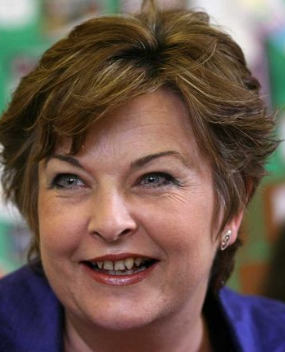
Fiona Hyslop
Cabinet Secretary for Culture and External Affairs in the Scottish Parliament, with responsibility for Europe added in November 2014, her portfolio includes architecture and built heritage. Her MA from Glasgow University was in Economic History and Sociology, and her graduate Diploma was in Industrial Textiles, prior to working in Edinburgh with Standard Life, eventually as Brand Development Manager. Ms Hyslop was elected a Lothians MSP in 1999, MSP for Linlithgow and was appointed Cabinet Secretary for Culture and External Affairs in 2011.
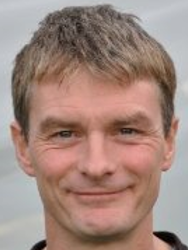
Ewan Hyslop
Head of Sustainability, Heritage Science and Technical Buildings Research at Historic Scotland he also oversees Technical Education, publications and events. A geologist by training hae has worked on a huge range of research from the disposal of radioactive waste, radon gas and mineral exploration. After an MSc in Architectural Conservation in 2004 his project cover various fields including the conservation and repair of heritage structures and the decay of various materials, new forms of treatment and conservation strategies for anything from castles to cannon-balls, work that involves a huge amount of collaboration with organisations and universities throughout the UK and around the world.
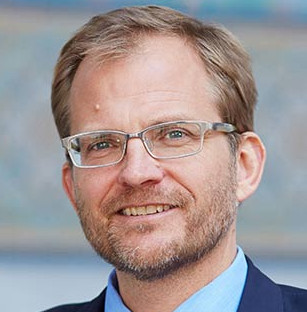
Matt Petersen
Elected in 2013 as Los Angeles first Chief Sustainability Officer he is responsible for developing environmental initiatives across all city departments to create healthier neighbourhoods with cleaner air and water. As CEO at Global Green USA since 1994, he helped build one of the country’s leading environmental organizations, pioneering the greening of schools, affordable housing, and cities, while advancing the market for solar energy, green buildings, and fuel efficient cars, air and water. .TIME Magazine recognized Petersen and Global Green's leadership in helping New Orleans rebuild a more resilient and greener community after Hurricane Katrina. He is considered a ‘Green All Star’ by many and was the opening keynote speaker at PLEA 2016 in Los Angeles.
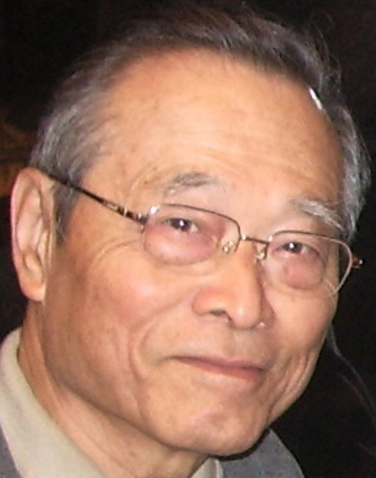
Ken-Ichi Kimura
Emeritus Professor at the Advanced Research Institute for Science and Engineering at Waseda University, he was also a founding member of PLEA. Over a career at Waseda and MIT universities he rose to be a pre-eminent pioneer of passive and low energy buildings in Japan, specialising in heating and cooling loads of buildings, passive solar system, active solar system, solar house design, energy conservation in buildings, thermal comfort, indoor air quality and visual environment and PV integration into building design. He is a distinguished member of many academic and professional societies including the Architectural Institute of Japan and the Japan Solar Energy Society and has been influential in many spheres including those of publication, conference organization and the construction of demonstration buildings.
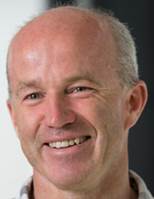
Roddy Langmuir
Roddy is one of four Practice Leaders at Cullinan Studio with particular responsibility for design quality. Having worked in Scotland and Canada, Roddy joined Cullinan Studio in 1987 and has worked on a wide variety of projects in most sectors. In 1994 he won a RIBA Award for the design of his father’s house at Avielochan in Scotland. Significant projects include the John Hope Gateway Visitor Centre in Edinburgh, the Centre for Mathematical Sciences at the University of Cambridge, Singapore Management University City Campus and the Shahat Garden City Masterplan for a carbon neutral town in Libya’s Green Mountain Region. Currently Roddy leads the Cullinan team on the National Automotive Innovation Centre for Jaguar Land Rover, Tata and the University of Warwick, due for completion next year and set to re-energise cutting edge research and design for manufacturing in the Midlands.
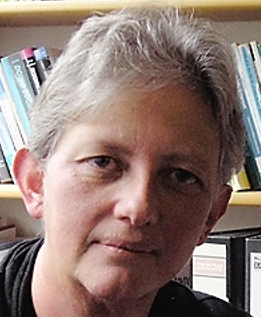
Kay Saville-Smith
Kay is the director of CRESA (www.cresa.co.nz) and has undertaken extensive research into New Zealand housing markets, demand, sustainable and accessible housing and retirement villages, the residential building industry and neighbourhood design. Now leading the Life When Renting research programme funded by the Ageing Well National Science Challenge she is also researching into domestic decision making patterns building on here work on Finding the Best Fit – Housing, Downsizing and Older People in a changing Society: Resilient Communities – Doing Better in Bad Times (aimed at helping older people and their communities to be more resilient during adverse natural events and recover better after them); Good Homes (older people’s repairs and maintenance needs in the context of ageing in place); Sustainable Neighbourhoods and social aspects of the Building Energy End-use Study undertaken by BRANZ. She is also a trustee for the Marlborough Sustainable Housing Trust.
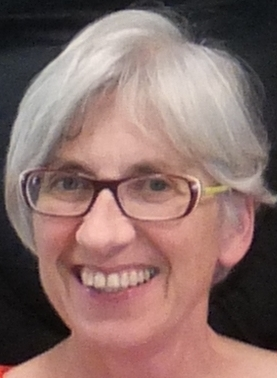
Bev James
Bev James is Director of Public Policy & Research Ltd, with over 30 years’ experience as a social researcher and policy advisor working with housing; ageing in place; community resilience; and resource management. She is a researcher in two of New Zealand’s National Science Challenges; Ageing Well, and Building Better Homes, Towns and Cities. Housing-related research includes: downsizing; older people’s repairs and maintenance practices; residential movement; housing affordability; housing needs of people with disabilities and monitoring retirement village legislation. Bev has a strong focus on working with community-based organisations and developing evidence-based tools and resources. Bev is Chair of the Marlborough Sustainable Housing Trust.
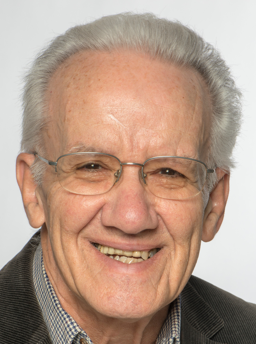
George Baird (POE)
Emeritus Professor of Building Science at the School of Architecture, Victoria University of Wellington, George Baird, FCIBSE, FIPENZ, gained his PhD in Engineering from Glasgow University and attended the National College for HVR&F Engineering in London. He moved to New Zealand in 1975 to help set up the School in Wellington. He specialises in building environmental science, the energy efficient design and operation of buildings and overall building performance. His major books include: Energy Performance of Buildings, Building Evaluation Techniques, Architectural Expression of Environmental Control Systems, and most recently Sustainable Buildings in Practice, (Routledge, 2010).
See www.victoria.ac.nz/architecture/staff/george-baird.aspx
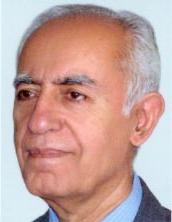
Mehdi Bahadori (Windcatchers)
Professor Bahadori is a retired professor of mechanical engineering at Sharif University of Technology, Iran. His research specialties include solar energy applications and passive cooling of buildings Bahadori got his Bachelor of Science degree from the University of Tehran in 1956; his Master of Science degree from the University of Wisconsin–Madison in 1959; and his PhD from the University of Illinois at Urbana–Champaign in 1964. Internationally renown for his work on windcatchers in 2014 Springer published his book on Wind Towers: Architecture, Climate and Sustainability with co-authors Dehghani Sanij and Sayigh, a book that provides the only holistic treatment of wind towers, a core aspect of sustainable architecture in hot, arid climates. The authors explain how traditional incarnations of these structures provide significant decreases in energy consumption through their use of renewable wind resources to cool buildings and water storage facilities.
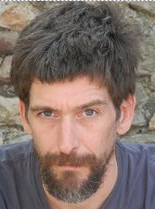
Chris De Deker
In 2007 he created and now writes for Low-tech Magazine (and No Tech Magazine since 2009), blogs that are published in English, Dutch and Spanish. No and Low-tech Magazines refuse to assume that every problem has a high-tech solution. He is also creator and author of DEMAND Centre at Lancaster University (working recently with them on the future of offices) and the Department of Search, University of Utrecht (The Netherlands). The Department of Search is an insert of artistic and informal searching at the Utrecht Science Park campus. Since 2015. Co-author of the book Energy in 2030, and author of Radiant Heat a book on simple and affordable ecological technology in the Netherlands he also writes in-depth articles on science, technology, energy and environment in Belgium and Holland. See www.krisdedeker.org
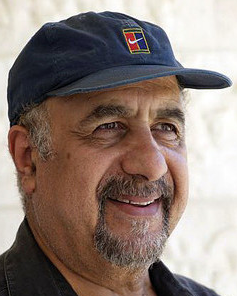
Ihsan Fethi (Historic Buildings)
Professor of Architecture at Amman University, Jordan with a Doctorate in Urban Conservation (Sheffield, 1978) and Batchelors in Architecture (Cardiff, 1968). He has published 12 books and over 50 research papers, founded 5 Colleges of Architecture across the Arab World and the Heritage Department at Baghdad Municipality (1983) and was Chairman of Baghdad School of Architecture in 1986-1991. A consultant to UNESCO, the Getty Conservation Institute, World Monument Fund and ICCROM he is an expert on the cultural heritage in Iraq, Iraqi Art and Architecture as historian and critic he now works on salvaging works of antiquity destroyed by ISIS.
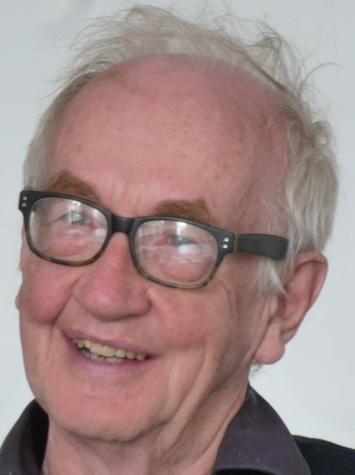
Fergus Nicol (Thermal Comfort)
Fergus Nicol is an internationally recognised pioneer of human thermal comfort, principally the ‘adaptive’ approach and with Professors Michael Humphreys and Susan Roaf is author of the leading trilogy of books on the subject Adaptive thermal comfort: principles and practice (2012 Routledge); Adaptive thermal comfort: foundation and analysis (2016); How to Design a Comfortable Building (2017 – in Press). He is the principal author of CIBSE TM52: The limits of thermal comfort, avoiding overheating in European buildings (2013). He is co-chair of the Windsor Conferences on Thermal Comfort; manages the Network on Comfort and Energy Use in Buildings and works with London Metropolitan, Oxford Brookes and Heriot Watt Universities and University College London.
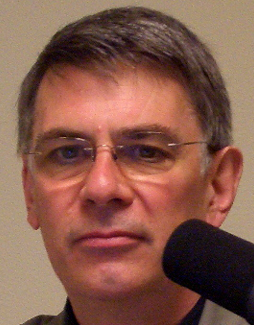
Adrian Leaman (Post Occupancy Evaluation)
Adrian Leaman has been at the forefront of building evaluation studies for 30 years, with a varied background taking in consultancy with Building Use Studies, university teaching and charitable work with the Usable Buildings Trust. With over 150 publications and many public presentations worldwide, he interprets building performance from the users' point of view. See: www.usablebuildings.co.uk

David S Mitchell (Historic Buildings)
Director of Conservation, Historic Environment Scotland and for the Centre for Digital Documentation and Visualisation LLP. At Historic Scotland he oversees technical and scientific research and innovation, technical education, traditional materials and skills, climate change and applied conservation for 345 properties and collections in the care of Scottish Ministers with a Scottish technical team of 400. His PhD was on the Scottish architectural iron founding industry and he has been Managing Director of Heritage Engineering, specialising in the conservation of industrial heritage. He is an honorary lecturer at The University of Strathclyde on the conservation of Built Heritage master’s course.
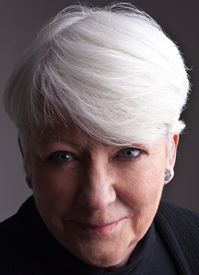
Susan Roaf (Adapting to Climate Change)
Sue Roaf (B.A.Hons, A.A. Dipl., PhD, ARB, FRIAS) is Emeritus Professor of Architectural Engineering at Heriot Watt University and an award winning author, architect, solar energy pioneer and was an Oxford City Councillor for seven years. Her research covers windcatchers and nomadic architecture in Iran, Mesopotamian archaeology, photovoltaics, low carbon, resilient and sustainable design, material considerations in design and thermal comfort. She is known for her pioneering work on the solar and ecohouse, resulting in the internationally best-selling book Ecohouse: A Design Guide on the subject. Her other books include Adapting Buildings and Cites for Climate Change and Benchmarks for Sustainable Buildings. How to design a Comfortable Building. She worked with the Scottish Government and their Climate Adaptation team recent awards include 2013 Top 6 - UK ‘First Women’ Awards as a ‘Visionary’ in the Built Environment.
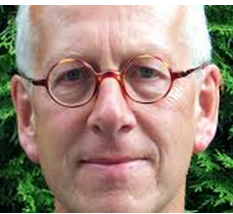
Harald Røstvik (Transport)
Professor Harald N. Røstvik (Norway), architect (School of Architecture, University of Manchester, UK) is a pioneer, a visionary of sustainable design. Since 1977 he has designed and researched sustainable buildings, communities and transportation systems in European, African and Asian climates. He initiated the legendary approach of the International Solar Energy Society (ISES), as Chairman of the Norwegian section that in alliance with Eurosolar at the 1992 UN Rio Conference got energy up as a separate theme in the negotiations, which it was not at the time. He initiated the world’s best electric vehicle incentives in Norway in 1988. He teaches Urbanism spec sustainability at University of Stavanger and at Bergen School of Architecture, while still in private practice. He has written eight books.
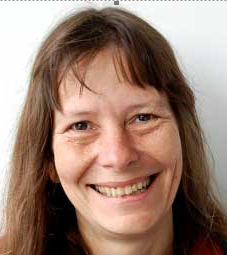
Elizabeth Shove (Policy)
Elizabeth Shove is a Professor in the Sociology Department at Lancaster University, and co-director of the DEMAND Research Centre. Her recent research has been about how social practices change and about the implications of these dynamics for everyday life, energy demand and climate change. Recently she has worked on the role of Standards and their impacts in normative and cultural regulation of office design showing that they are tending to result in particular high energy design types being legitimised and valued, and lower energy designs being delegitimised, devalued and at pushed to the periphery of the attention of commercial office designers.
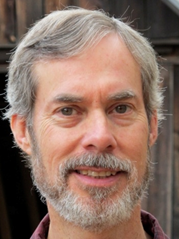
Alex Wilson (Adapting to Climate Change)
Alex Wilson is president of the Resilient Design Institute, a U.S. organization working to enhance the resilience of buildings and communities. He is also the founder of BuildingGreen, a highly respected, 30-year-old information company and consultancy focused on sustainable building. Alex is a widely published writer on topics of green building, energy, resilience, and the environment. He served on the national board of the U.S. Green Building Council from 2000 – 2005, and in 2008 he received the organization’s Leadership Award for Education; in 2010 he received the second annual Hanley Award for Vision and Leadership in Sustainability.
Karin Kappel – Copenhagen: Denmark
Karin Kappel is an Architect MAA from Denmark and has been the Secretariat Leader of the Solar City Copenhagen association since 2004, an organsationset up to contribute to a sustainable and carbon-neutral energy supply through the development of solar energy systems, information and communication of knowledge as well as through regional and international cooperation on solar energy projects in architecturally well-integrated solutions. The organisation was an amalgam of public and local institutions, private companies, building owners, investors, manufacturers, consultants, research institutions and housing associations. The City of Copenhagen funded a secretariat for running Solar City Copenhagen, and also set up a RE pool to support solar cell projects. The secretariat became self-financing and thus independent by 2010 and moved from the City Council premises into Arkitekternes Hus (premises of the Danish Architects’ Association) when the organisation also became nationwide. Over time, the organisation has established an extensive network of firms of architects and engineers, local authorities, manufacturers, research and educational institutions, environmental organisations, energy companies and organisations such as the Danish Energy Agency, the Danish Technological Institute, and the Architects’ Association of Denmark. The national and international network is extremely active as a policy driver, communication hub, development enabler and knowledge bank. Karin continues to lead this organisation and in 2015 co-wrote an acclaimed book on the achievements of a range of ‘Green Solar Cities’. They are well on their way to fulfilling their ambitious target of installing 40 MW or 280,000 sqm of photovoltaic by 2025.
Harvey Bryan
Professor Bryan is an architect and building scientist who is engaged in sustainable building design. He previously taught at MIT and Harvard and is currently a professor at Arizona State University. He has been active in several technical societies; he has served on committees responsible for developing of several national energy and sustainable building standards. He is a Fulbright Fellow, a Fellow of the American Institute of Architects as well as a Fellow of the American Solar Energy Society and is active in several professional and technical societies; he has served on the ASHRAE committee responsible for developing the 90.1 Energy Standard, is presently serving on the ASHRAE TC 2.8 and SPC 189 committees which are concerned with Buildings Impact on the Environment, as well as the AIA's Committee on the Environment. He was on the Board of Directors of the Arizona Chapter of the U.S. Green Building Council and is certified in both BREEAM (a rating system widely used in Europe and Canada) as well as LEED. He is currently serving on the Board of Directors on the Green Building Initiative which developed the Green Globes' rating system.
CIRCE MONTEIRO – RECIFE: BRAZIL
Professor Monteiro of the Federal University of Pernambu in Recife, Brazil is Director of INCITI - Research and Innovation Programme for Cities in Latin America. She works internationally on a wide range of programmes dealing with issues as diverse as Urban Resilience and the effectiveness of Public Policies on housing and ‘sustainability’ and ‘resilience’ issues in commercial developments and their social, economic and environmental impacts on local populations in cities. Her recently published work on restricting cities in changing times has been internationally recognise and she works closely with the urban authorities in Recife on a multitude of projects ranging from redevelopment of whole districts to demonstration projects on Sustainable Urban Drainage Systems, Green Infrastructure and the use of geospatial analysis techniques to manage and apply big data in planning.
Rajan Rawal – Ahmadabad: india
Rajan Rawal is a deputy director of the centre for Environmental Planning and Technology, Ahmedabad, Gujarat, India. His work focuses on ‘energy performance of buildings and cities’ and ‘architectural science education’. He coordinates the activities of Centre for Advanced Research in Building Science and Energy (CARBSE) recognized by US Agency for International Development (USAID) and Ministry of New and Renewable Energy (MNRE), Govt. of India. He serves as Principal Investigator and Co-principal Investigator of USAID and MNRE funded research projects. Presently, he is the Project Director (India) for the prestigious Indo-US Joint Clean Energy Research and Development Centre (JCERDC) project for Buildings. JCERDC is a multi-party five-year research project lead by CEPT University in India and Lawrence Berkeley National Laboratory (LBNL) in the USA. He is also leading research activities at CEPT University, funded by Shakti Sustainable Energy Foundation. He is deeply involved with the development of building and planning standards, guidelines and regulations in India.
Robert Toland – Sydney: Australia
Robert Toland heads Toland Architects, a studio-based architectural practice Established in 1975 designing and delivering multi-scale projects in Australia and Asia from its offices in Sydney Australia and Dalian China. Toland offers expertise in the disciplines of planning architecture and interiors. Through partnering with likeminded firms they can also provide landscaping and graphic design services. Toland Pty. Is very much a commercial practice but the projects created include inner city suburban centres, high profile internationally renowned designers like Shigeru Bann from Japan and the practice maintains co-operative approach building individual teams for different projects. He is expert in commercial development drivers, opportunities and constraints in Australia, China and Myanmar.
Edward Ng - President of PLEA: hong kong
Prof Edward Ng is an Architect and Yao Ling Sun Professor of Architecture in the Chinese University of Hong Kong (CUHK). He obtained his PhD from Cambridge University. He had worked as an architect before becoming a professor. His specialty is in Green Building, Environmental and Sustainable Design and in Urban Climatology for City Planning. At CUHK, he is the Director of the M.Sc. Sustainable and Environmental Design Programme, the Associate Director of the Institute of Future Cities (IOFC) and the Team Leader of Urban Sustainability and Public Health in the Institute of Energy, Environment and Sustainability (IEES). As an environmental consultant to the Hong Kong SAR Government, Edward developed the performance based daylight design practice note; the Air Ventilation Assessment (AVA) Technical Guidelines; and the Urban Climatic Maps for City Planning for the HKSAR Govt. He is now working with governments and agencies in Singapore, Macau, as well as a number of Chinese cities on the same. Among many of his research interests, he is collaborating with public health colleagues to investigate the impact of city design and climate change on urban living. He is a much awarded architects with plaudits gained from many organisations including the RIBA, UNESCO and received a Red Cross Humanitarian Award in 2010.
ISAAC MEIR – Negev: ISRAEL
He is Professor in Desert Architecture & Urban Planning, J. Blaustein Institutes for Desert Research, Ben-Gurion University of the Negev and publishes and lectures extensively in Israel and abroad. He is renowned for his work with the Israeli government, regions and cities in the fields of environmentally conscious and experimental design projects and planning in hot dry regions and is consultant to various institutions and NGOs, incl. Israel Ministries of Construction and Housing, Energy Water and Infrastructures, Israel Land Administration, Standards Institute of Israel, Israel Green Building Council. He heads multidisciplinary teams focusing on green technologies and sustainable development and if focusing on the impacts of climate change on design directions. Among other distinctions he received the 2016 Israel Green Building Council Award for Leadership in Green Building.
